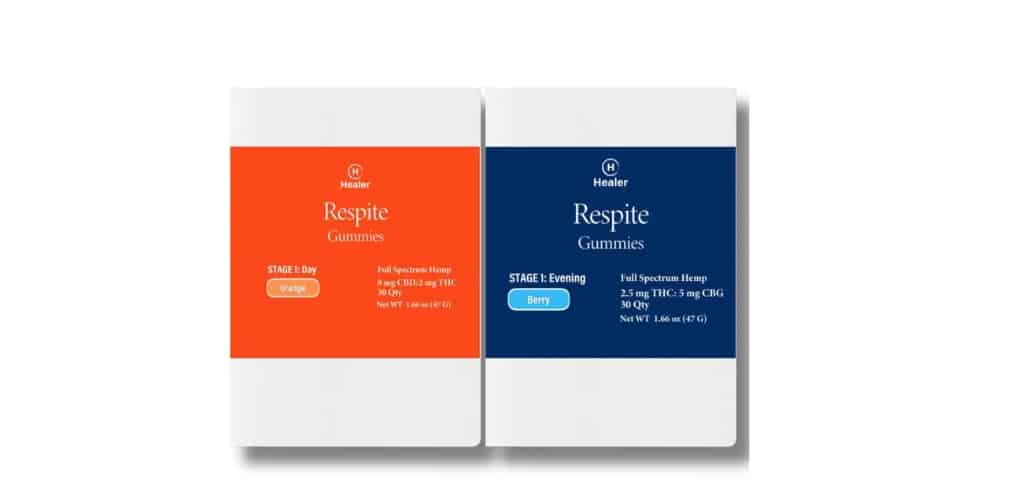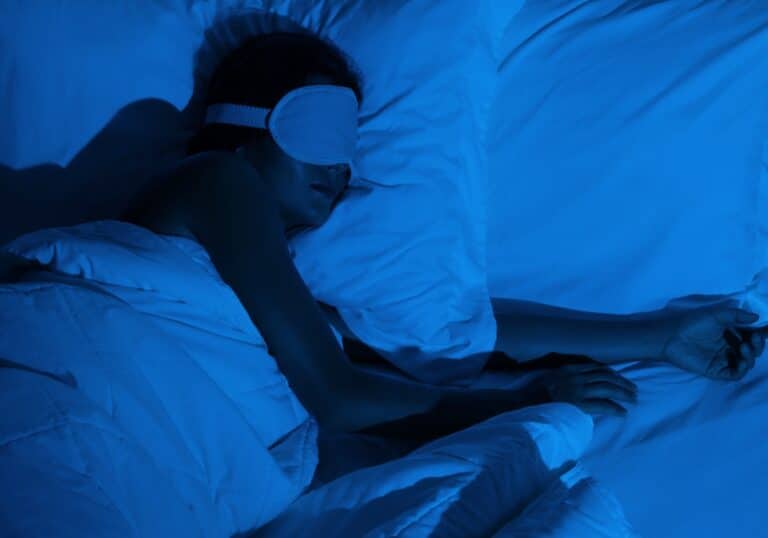Which CBD Is Best for Dementia Patients?
Posted on October 10th, 2023 to CBD by Healer Staff Writer

Dementia affects everything from cognitive processes and mood to sleep. CBD could potentially help negate some of the symptoms of dementia to enhance the quality of life. Find out more about using CBD for dementia symptoms below.
How does CBD treat dementia?
CBD does not treat dementia. However, the potential therapeutic properties of CBD may be beneficial for dementia patients. While CBD (cannabidiol) has not been proven to stop or reverse dementia symptoms, at least one peer-reviewed study suggests CBD could be beneficial for certain behavioral symptoms, such as aggression. Additionally, CBD may be an option for sleep support among dementia patients.
How to Use CBD for Dementia
CBD may be a supportive agent for an individual with dementia. Therefore, a regular usage with something like Healer Respite Gummies could be a good plan for everyday support. CBD may also be helpful in more acute situations, such as when a patient is feeling agitated or unsettled or just before bed to promote sleep.
How much CBD is needed for dementia symptoms?
Each patient can respond differently to cannabinoids. Therefore, it is a good idea to discuss dosage plans with a doctor on behalf of the patient and follow the start-low-go-slow process to determine the right dose. However, the general starting usage amount of CBD is 5mg to 10mg.
CBD products containing THC may work best
Current clinical studies are finding that THC, which the cannabis hemp plant also produces, works synergistically with CBD to increase the improvements in several symptoms in people with dementia including.
- Quality of life[iii]
- Behavioral symptoms like agitation[iv] and aggression[v]
- Pain[vi]
- Anxiety[vii]
- Sleep disturbance and nighttime wandering[viii]
- Low appetite and weight loss[ix]
- Stiffness and rigidity[x]
- Cognitive impairment[xi]
- Caregiver distress[xii]
Which CBD gummies are best for dementia?
The best gummies are full spectrum products (including naturally derived THC from hemp) made from organic certified hemp, with organic ingredients and lower amounts of sugar. The safest products have Certificates of Analysis that verify the product contains what it says on the label and is free from harmful contaminants. However, CBD gummies may not always be the best option for dementia patients especially if they can chew them. Gummies can take as long as an hour or more to take effect, while CBD oil drops can start working much faster. During acute instances of agitation, it can be important for effects to occur quickly.
Which CBD Is Best for Dementia Patients?
There are currently no CBD-based products approved by the FDA for dementia. Nevertheless, there are high-quality products available that are well-tested and come from reputable brands.
For example, Healer Respite Gummies are physician-developed, include a step-by-step user guide, and are lab-tested to prove they are free of contaminants and reliable. You can even get a free consultation about using hemp products by contacting Healer for advice. Therefore, if you are wondering where to buy CBD gummies for dementia, you can count on Healer.
The information in this post/article is provided for educational purposes and is not a substitute for or alternative to information from your healthcare providers. Statements and claims on this website have not been evaluated by the Food and Drug Administration. Any products mentioned are not intended to diagnose, treat, cure or prevent any disease.
References.
[i] Shelef, Assaf, et al. “Safety and efficacy of medical cannabis oil for behavioral and psychological symptoms of dementia: an-open label, add-on, pilot study.” Journal of Alzheimer’s disease 51.1 (2016): 15-19.
[ii] Hermush, Vered, et al. “Effects of rich cannabidiol oil on behavioral disturbances in patients with dementia: A placebo controlled randomized clinical trial.” Frontiers in Medicine 9 (2022): 951889.
[iii] Pautex, Sophie, et al. “Cannabinoids for behavioral symptoms in severe dementia: Safety and feasibility in a long-term pilot observational study in nineteen patients.” Frontiers in Aging Neuroscience 14 (2022): 957665.
[iv] Hermush, Vered, et al. “Effects of rich cannabidiol oil on behavioral disturbances in patients with dementia: A placebo controlled randomized clinical trial.” Frontiers in Medicine 9 (2022): 951889.
[v] Woodward, Matthew R., et al. “Dronabinol for the treatment of agitation and aggressive behavior in acutely hospitalized severely demented patients with noncognitive behavioral symptoms.” The American Journal of Geriatric Psychiatry 22.4 (2014): 415-419.
[vi] Flávio Henrique de Rezende Costa., et al. “Parkinson’s Disease and Dementia with Lewy Bodies, Patients Under Treatment withStandardized Extracts Enriched in Cannabidiol and Cannabigerol: Descriptive Observations in Preparation for a Phase 2a Clinical Trial”.EC Neurology 14.5 (2022): 01-15.
[vii] Flávio Henrique de Rezende Costa., et al. “Parkinson’s Disease and Dementia with Lewy Bodies, Patients Under Treatment withStandardized Extracts Enriched in Cannabidiol and Cannabigerol: Descriptive Observations in Preparation for a Phase 2a Clinical Trial”.EC Neurology 14.5 (2022): 01-15.
[viii] Walther, Sebastian, et al. “Delta-9-tetrahydrocannabinol for nighttime agitation in severe dementia.” Psychopharmacology 185 (2006): 524-528.
[ix] Volicer, Ladislav, et al. “Effects of dronabinol on anorexia and disturbed behavior in patients with Alzheimer’s disease.” International journal of geriatric psychiatry 12.9 (1997): 913-919.
[x] Broers, Barbara, et al. “Prescription of a THC/CBD-based medication to patients with dementia: a pilot study in Geneva.” Medical Cannabis and Cannabinoids 2.1 (2019): 56-59.
[xi] Palmieri, Beniamino, and M. Vadalà. “Oral thc: cbd cannabis extract in main symptoms of Alzheimer disease: agitation and weight loss.” La Clinica Terapeutica 174.1 (2023).
[xii] Palmieri, Beniamino, and M. Vadalà. “Oral thc: cbd cannabis extract in main symptoms of Alzheimer disease: agitation and weight loss.” La Clinica Terapeutica 174.1 (2023).


